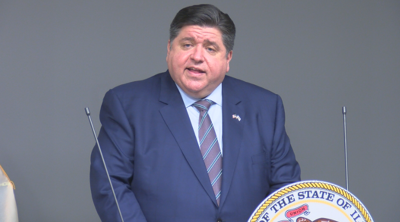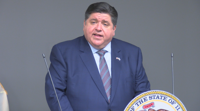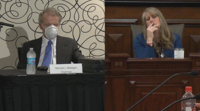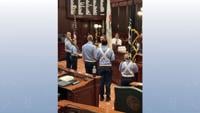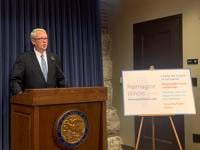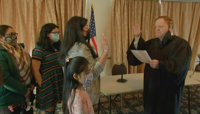SPRINGFIELD, Ill. �� Natural gas prices have skyrocketed along the panhandle pipeline stretching from Texas to Michigan. Some downstate communities struggling to deal with surging energy prices could get a hand from the state leaders.
Gov. JB Pritzker asked the Illinois Finance Authority to create a $15 million low-interest loan program to help the smallest municipalities hit by the outlandish gas prices. During winter, these communities usually pay $2-$3 per dekatherm of natural gas. That’s a stark difference from the $225 per dekatherm municipalities paid last week.
Illinois hasn’t seen the same challenges Texas did with the winter freeze. However, Pritzker explained several towns and villages in Central and Southern Illinois have taken on “unbearable financial sacrifices.�� In fact, the village of Franklin estimates their gas costs for the month will be more than two-and-a-half times what the local leaders set aside for the entire year.
“Our families in our communities are proud and they’re resilient,�� Pritzker said Tuesday. “But, these aren’t problems that anyone should have to tackle alone. The state of Illinois will not leave our people out in the cold.��
Mayors from communities surrounding Springfield contacted their lawmakers to ask for help on this issue as soon as possible.
“The next day, the governor calls me and wanted to reassure us that help was on the way and that they’re taking this very seriously. Low and behold, eight days later, here we are,�� explained Pawnee Mayor Jeff Clarke. “That speaks volumes in state of Illinois government. It really does. I’ve never seen anything move this fast. It’s fantastic.��
Creating manageable payment plans
The finance authority could formalize Pritzker’s plan during a special meeting on Thursday. The governor noted this loan program could allow local governments to spread payments out in a more manageable timeframe. Pritzker hopes that will help local leaders avoid more burdens for their residents or businesses.
Downstate Republicans also appreciated Pritzker’s response to the issue. Sen. Steve McClure (R-Springfield) said he was relieved the governor was well aware of the situation.
“The fact that he’s paying close attention to these details and genuinely cares about the rural parts of this state �� that’s good news for all of us,�� McClure said. “Times like this are bipartisan times where we can all come together. Let’s work together and do what we can for the state. And I appreciate the fact that you’re doing that, governor.��
Pritzker also issued a statewide disaster declaration on February 16 in response to the extreme weather. Heather Viele, the General Manager of the Interstate Municipal Gas Agency thanked members of the Pritzker administration for their quick work with IFA to create a funding package to help local governments.
“The swift and decisive actions by Gov. Pritzker, Andy Manar, and the Illinois Finance Authority have put Illinois ahead of the curve in providing relief in this time of crisis as compared to our surrounding states,�� Viele said.
Holding Texas accountable
Still, Pritzker hopes the federal government can also supply some direct aid to the communities hit by the high prices. This comes as the loan program can only provide temporary relief for a long-lasting financial issue. However, Rep. Sue Scherer (D-Decatur) is looking for answers from Texas where the problem originated. She feels the Electric Reliability Council of Texas, ERCOT, needs to be held accountable.
“I thought there’s no way that this crisis in Texas is affecting small communities that are right up the street from my house. As they explained it, there’s only one pipeline going through and they’re controlling the cost of everything. It’s gotta stop,�� Scherer emphasized. “The way I feel that we’re going to solve the problem is to put a lot of pressure on Texas, their government, so that they put the pressure on ERCOT to correct this mistake that is just horrendous.��
Scherer said the United States could do better. She stressed it was hard to believe the issue got to this point. But, Scherer was happy to see the bipartisanship shown in Illinois�� response.
“We know this isn’t gonna fix it,�� Scherer added. “But, I mean, at this point, it’s better than nothing, which is where we were at a few days ago.��

